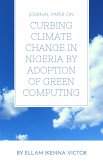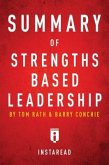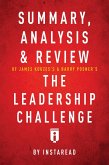Unlocking the Future: Educating for Integrity, Prosperity, and Peace
Imagine a Nigeria where every child grows into a responsible, ethical, and community-oriented adult, ready to contribute positively to society. The foundation for such a future lies in a robust Moral and Character-Based Educational Policy.
By drawing inspiration from the successful models of the Republic of Korea and the UAE—nations renowned for their low crime rates and prosperous economies—we can transform Nigeria into an egalitarian society rooted in integrity, hard work, and mutual respect.
Why Moral and Character Education?
Foundation of Strong Societies:
The Republic of Korea and the UAE are exemplary in demonstrating how moral and character education can underpin a thriving, low-crime society. Their success stories show the immense benefits of prioritizing ethical education.
Fostering National Values:
Honesty, hard work, community orientation, and hospitality are core Nigerian values. Our educational policy will reinforce these values, ensuring they are deeply ingrained in the next generation.
Economic Prosperity and Social Stability:
A well-implemented moral education policy directly correlates with reduced crime rates and a more prosperous economy. By focusing on character development, we create a workforce that is not only skilled but also ethically grounded.
Key Features of Our Educational Policy
Integrated Curriculum:
Moral education is seamlessly woven into all subjects, ensuring that ethical considerations are a part of everyday learning.
Holistic Development:
Emphasis on self-respect, empathy, and responsibility helps students develop into well-rounded individuals.
Community Engagement:
Students participate in community service projects, fostering a sense of civic duty and social responsibility from a young age.
Global Perspectives:
Lessons in cultural awareness and global citizenship prepare students to thrive in an interconnected world while valuing their Nigerian heritage.
Ethical Decision Making:
Students are trained to navigate complex moral dilemmas, enhancing their critical thinking and ethical reasoning skills.
Implementation Strategies
Teacher Training and Development:
Equipping educators with the skills to teach moral and character education effectively.
Parental and Community Involvement:
Engaging parents and communities to reinforce moral values at home and in society.
Continuous Monitoring and Improvement:
Regular assessment of the program’s impact, with feedback mechanisms to ensure continuous improvement and adaptation.
Vision for the Future
Our Moral and Character-Based Educational Policy is not just a curriculum change; it is a societal transformation. By investing in the moral and ethical development of our youth, we lay the groundwork for a peaceful, prosperous, and egalitarian Nigeria.
Join us in this transformative journey to build a Nigeria where integrity, respect, and community spirit are the cornerstones of our national identity. Together, we can create a future where every Nigerian can thrive in a just and equitable society.
Invest in Moral Education. Build a Stronger Nigeria.
Imagine a Nigeria where every child grows into a responsible, ethical, and community-oriented adult, ready to contribute positively to society. The foundation for such a future lies in a robust Moral and Character-Based Educational Policy.
By drawing inspiration from the successful models of the Republic of Korea and the UAE—nations renowned for their low crime rates and prosperous economies—we can transform Nigeria into an egalitarian society rooted in integrity, hard work, and mutual respect.
Why Moral and Character Education?
Foundation of Strong Societies:
The Republic of Korea and the UAE are exemplary in demonstrating how moral and character education can underpin a thriving, low-crime society. Their success stories show the immense benefits of prioritizing ethical education.
Fostering National Values:
Honesty, hard work, community orientation, and hospitality are core Nigerian values. Our educational policy will reinforce these values, ensuring they are deeply ingrained in the next generation.
Economic Prosperity and Social Stability:
A well-implemented moral education policy directly correlates with reduced crime rates and a more prosperous economy. By focusing on character development, we create a workforce that is not only skilled but also ethically grounded.
Key Features of Our Educational Policy
Integrated Curriculum:
Moral education is seamlessly woven into all subjects, ensuring that ethical considerations are a part of everyday learning.
Holistic Development:
Emphasis on self-respect, empathy, and responsibility helps students develop into well-rounded individuals.
Community Engagement:
Students participate in community service projects, fostering a sense of civic duty and social responsibility from a young age.
Global Perspectives:
Lessons in cultural awareness and global citizenship prepare students to thrive in an interconnected world while valuing their Nigerian heritage.
Ethical Decision Making:
Students are trained to navigate complex moral dilemmas, enhancing their critical thinking and ethical reasoning skills.
Implementation Strategies
Teacher Training and Development:
Equipping educators with the skills to teach moral and character education effectively.
Parental and Community Involvement:
Engaging parents and communities to reinforce moral values at home and in society.
Continuous Monitoring and Improvement:
Regular assessment of the program’s impact, with feedback mechanisms to ensure continuous improvement and adaptation.
Vision for the Future
Our Moral and Character-Based Educational Policy is not just a curriculum change; it is a societal transformation. By investing in the moral and ethical development of our youth, we lay the groundwork for a peaceful, prosperous, and egalitarian Nigeria.
Join us in this transformative journey to build a Nigeria where integrity, respect, and community spirit are the cornerstones of our national identity. Together, we can create a future where every Nigerian can thrive in a just and equitable society.
Invest in Moral Education. Build a Stronger Nigeria.









